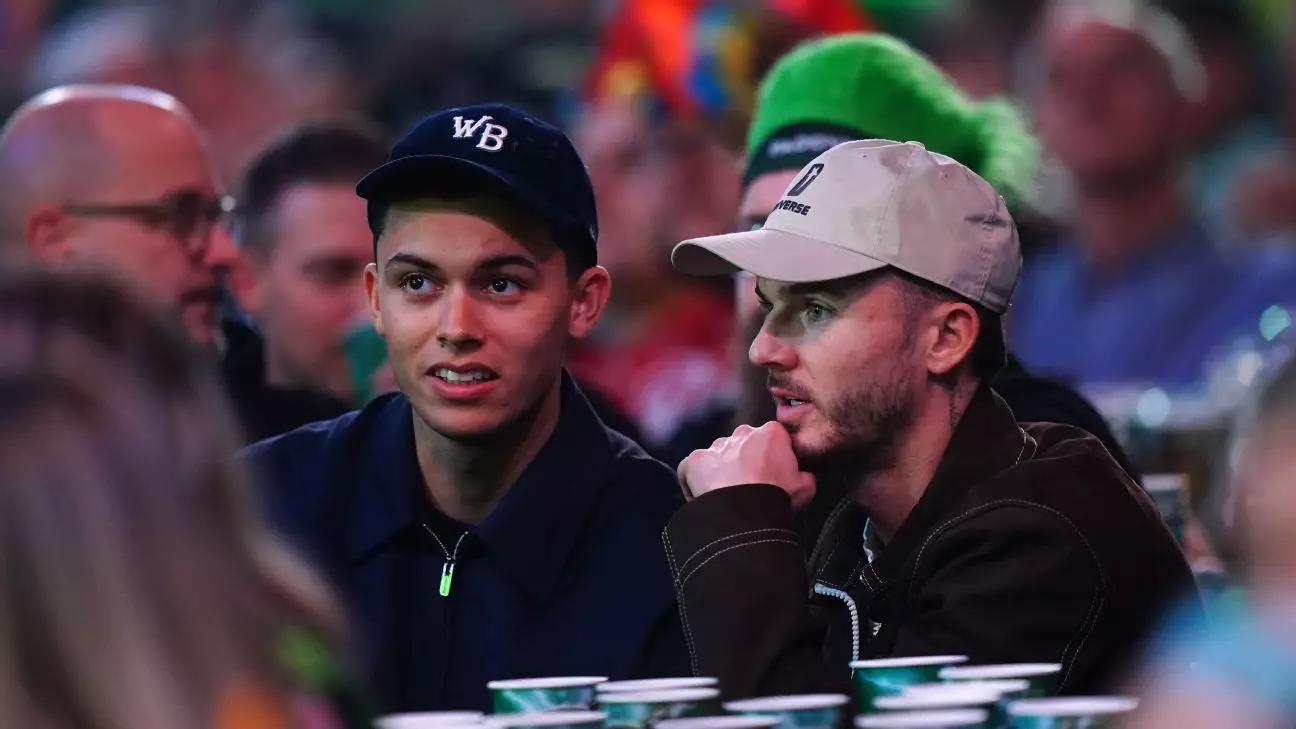In the world of football, player welfare has become an increasingly important topic, and recent events concerning Tottenham Hotspur’s manager, Ange Postecoglou, and midfielder James Maddison exemplify this trend. Following a 2-2 draw against Wolverhampton Wanderers, where Maddison started on the bench due to illness, he was later spotted at the PDC World Darts Championship. This incident raised eyebrows and questions about player conduct and commitment outside of training and match days.
Ange Postecoglou’s response to the situation was notably relaxed. He emphasized that players maintaining a personal life away from football is essential for their well-being. According to him, having interests outside the sport does not hinder a player’s performance but can be beneficial. Postecoglou stated, “It’s a lot different trying to play a game of football and living a life,” indicating that balance is crucial for athletes. He acknowledged Maddison’s situation, underscoring that illness was the reason for his absence from the starting lineup rather than a lack of commitment. This perspective is refreshing, as critics often bombard players for any perceived lack of focus on football.
Maddison has undeniably been a significant asset for Tottenham this season, notching up eight goals in 19 league matches. Postecoglou’s emphasis on keeping him fit and sharp suggests a strategic approach to player management, especially given the demanding fixture schedule the team faces. The coach’s philosophy highlights the necessity of not overutilizing players, particularly when they are not at their best. This approach should ideally promote a more sustainable model of player performance, allowing athletes to recover and execute their skills when needed most.
Maddison’s attendance at the darts championship, although frowned upon by some fans, illustrates an emerging trend where players engage in leisure activities as a form of mental recovery. Footballers, like all professionals, face immense pressures, and taking time for personal enjoyment can lead to better mental health outcomes. Rather than viewing such actions as distractions, they should potentially be regarded as rejuvenation methods that enable players to return to their primary focus with renewed vigor.
Postecoglou’s approach stands in contrast to more traditional views that prioritize unquestioning dedication to football. By recognizing the importance of mental health and personal interests, he sets a precedent for future managerial philosophies. This reflects a deeper understanding that football, while critical, is part of the larger spectrum of a player’s life. The larger implication might encourage other teams to adopt similar views, leading to enhancements in player morale and overall team performance.
The incident involving James Maddison and Ange Postecoglou sheds light on the evolving dynamics of player engagement in professional sports. Balancing on-field performance with personal well-being can create an environment that promotes both physical and mental health, ultimately benefiting the teams and their players.

Leave a Reply